

Exploring the history and evolution of capitalism - and the meta crisis inherent in our contemporary economic system!
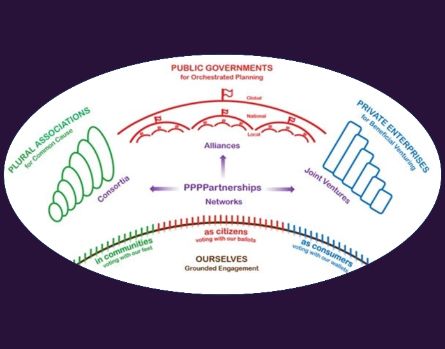
GETTING READY
CAPITALISM IN CRISIS: IS OUR WORLD IN TROUBLE?
As Paul Adler compellingly argues, our world grapples with a multitude of crises intricately tied to the evolution of our capitalist system—perhaps inherently so. This raises the pivotal question: What actions can we take to address these challenges?
PLURALISTS OF ALL COUNTRIES, UNITE(Click on the icon for pdf)
In this article, we delve into Henry Mintzberg's fervent call to "rebalance society". Mintzberg cautions against embracing the ideals propagated by libertarian neo-evangelists who advocate for a "win-win wonderland", promoting the notions that "greed is good, property is sacred, markets are sufficient, and governments are suspect". He asserts that we have been following the wrong gospel: it is not capitalism, but rather THE BALANCE that emerged victorious at the end of the cold war. This balance encompasses societal forces conducive to the common good, including a private sector of responsible businesses, a public sector of respected governments, and a "plural sector" comprising robust communities. Mintzberg challenges us to restore this balance in order to reinvigorate a positive economy.
Jump to
The Hunt for Good Organisations Commences!
Learning Journey
Core Concepts (click icons to jump to discovery)
Capitalism is Failing (1)
Please reflect for yourself: What is the problem with Capitalism? How does capitalism contribute to crises like climate change and growing inequality, both within and across countries? What is the problem of endless growth?
Root Causes of the Crises of Capitalism (2)
Reflect on the root causes of these alleged failures. Why doesn't Adam Smith's famous "invisible hand" appear to work effectively?
The Impact of Capitalism on Suffering at Work (3)
How does Capitalism reflect on the climate and conditions for people within enterprises?
Is Capitalism good?
Based on all of the above, note down in your journal some personal reflections. What do you think are our biggest challenges with a capitalist economy? What are the root causes? Can Capitalism be fixed? And... what's the role of business?
Our Perspective On Core Concepts
“We hold these truths to be self-evident, that all people are created dependent — on each other, our earth, and its climate — endowed with the inalienable responsibility to maintain justice, liberty and affiliation for all.” ― Henry Mintzberg
Framing The Context: Business As A Force For Bad
In this initial phase of our inquiry, we set out on a journey to identify and comprehend the critical challenges facing contemporary capitalism. Our aim is to elevate awareness and insight into the deficiencies of the current system, probing beneath the surface to uncover their fundamental causes and explore avenues for alleviating the resulting hardships. Departing from conventional wisdom, we delve into scholarly literature and authoritative texts, immersing ourselves in a range of ideas and initiatives aimed at reshaping, reforming, or potentially revolutionizing our economic framework.
Click on each concept heading to learn more...



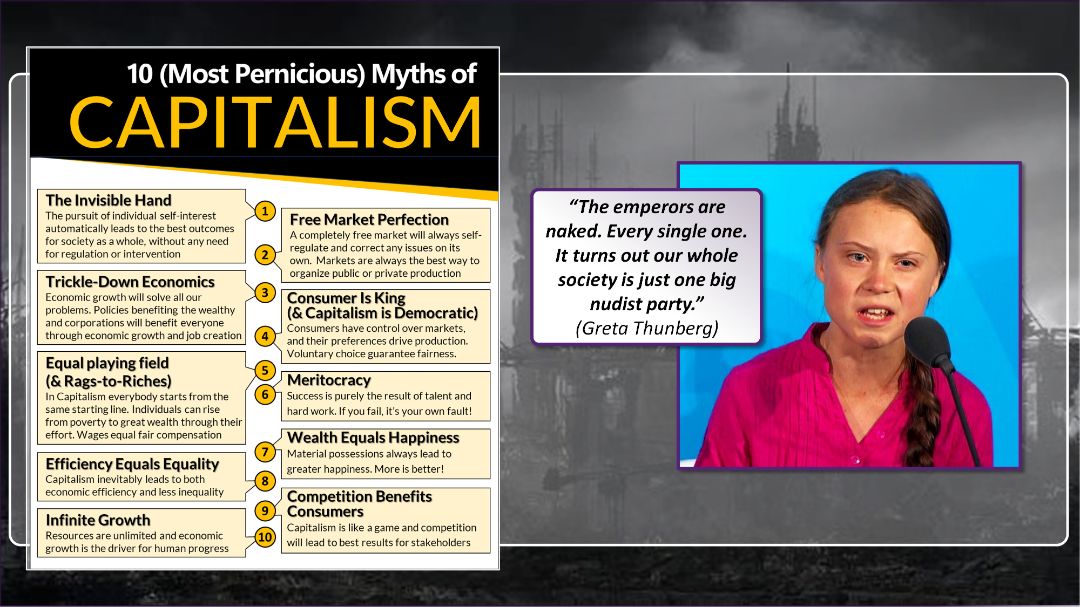
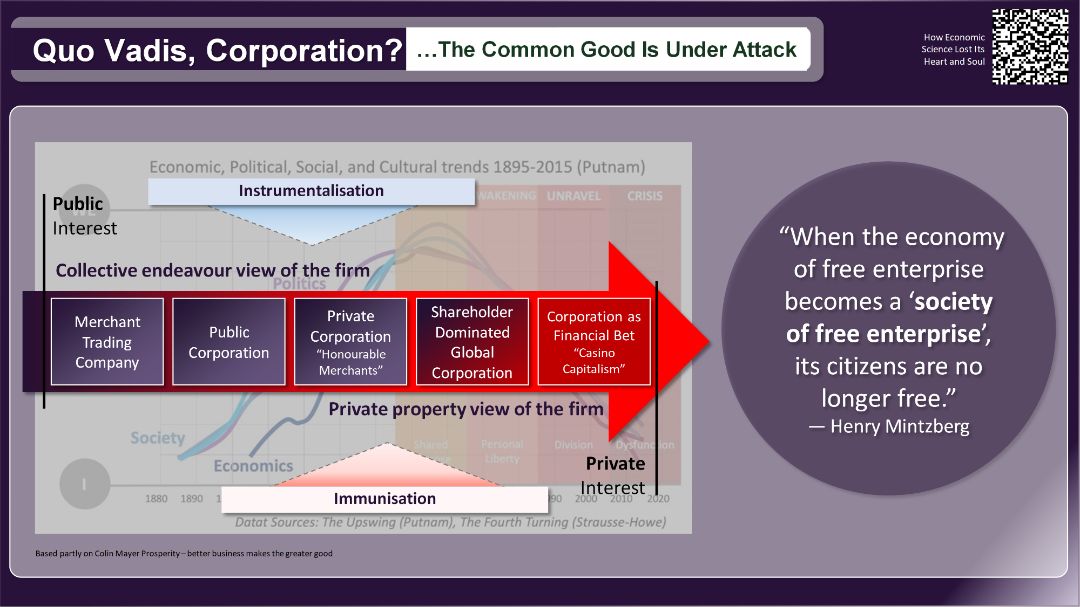
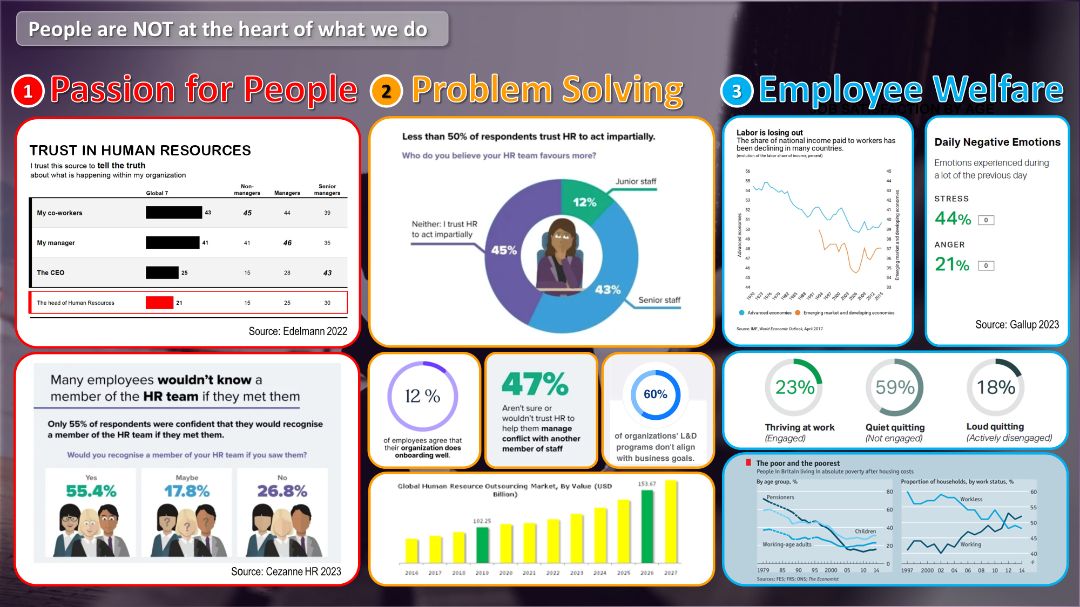
Below you can also find a few blog posts that dive into our evolving thoughts around these concepts
“Decades of financial capitalism have amplified the ‘invulnerable’ work culture in large global enterprises, where every vulnerability must be ejected.” ― Luigino Bruni
Discover New Puzzle Pieces of Wisdom On A Search For Eureka Moments!
Video Library
Core Concepts Unveiled
Materials marked in dark purple are foundational. Those flagged in light purple are for in-depth exploration.
Core Concept 1: Capitalism is failing
Core Concept 1: Capitalism is failing
Please reflect for yourself: What is the problem with Capitalism?
(1) What are the major global crises we are facing these days?
(2) How does capitalism contribute to or exacerbate them, even if it is not their direct cause? Can you provide specific examples?
Core Concept 2: Root Causes
Core Concept 2: Root Causes of the Crises of Capitalism
Reflect on the root causes of the failures of Capitalism. Why doesn't the "invisible hand" appear to work effectively?
1) Summarize what you have learned about the different root causes2) How does Capitalism contribute to the crises we have identified in the last section?
3) To what degree are these root causes intrinsic to a capitalistic system?
Core Concept 3: Suffering at Work
Core Concept 3: Capitalism is creating suffering at work
Please reflect for yourself: What is the impact of Capitalism on work and employment relationships?
(1) What are the consequences of the instrumentalisation of labour? What is the state of work at present?
(2) What is the state of work under the current form of capitalism?
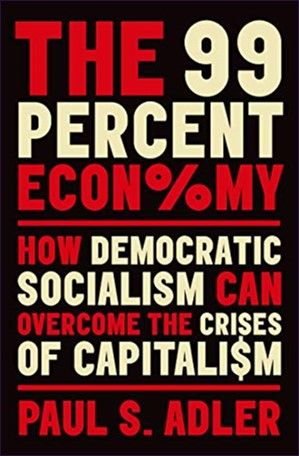
The 99 Percent Economy
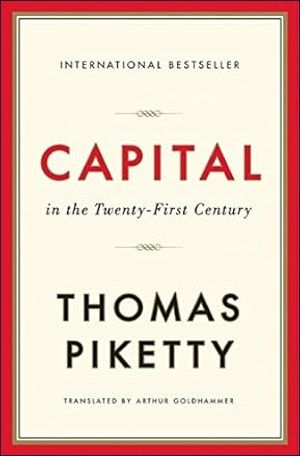
Capital in the Twenty-First Century
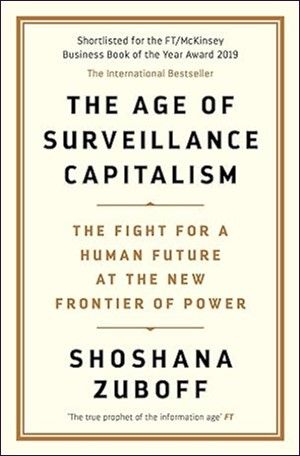
The Age of Surveillance Capitalism: The Fight for a Human Future at the New Frontier of Power: Barack Obama's Books of 2019
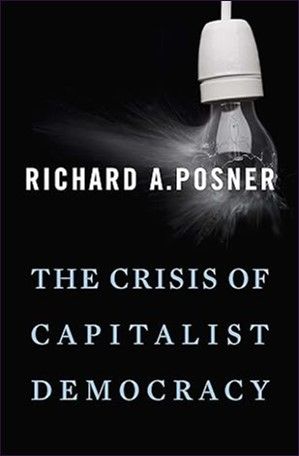
The Crisis of Capitalist Democracy
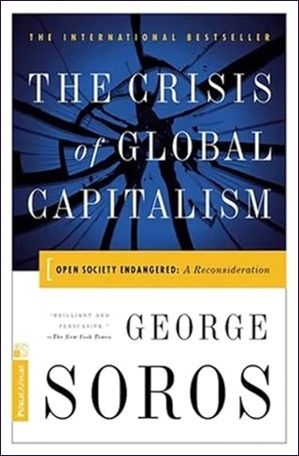
The Crisis Of Global Capitalism: Open Society Endangered
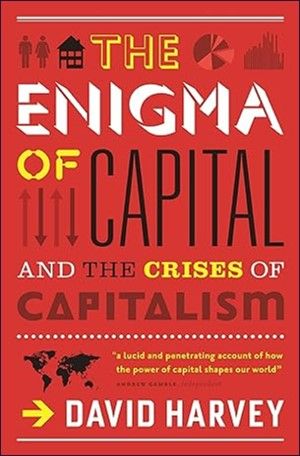
The Enigma of Capital: And the Crises of Capitalism
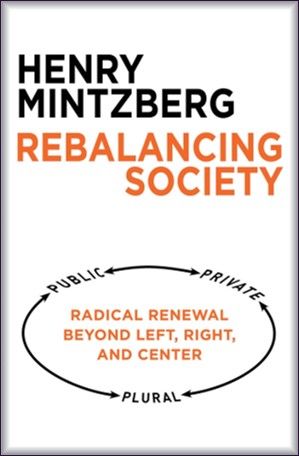
Rebalancing Society
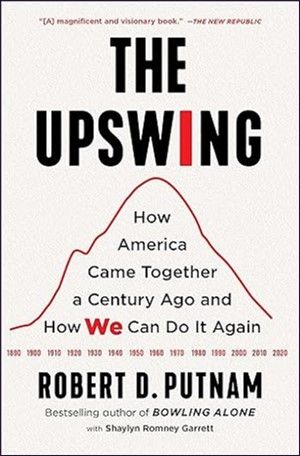
The Upswing: How America Came Together a Century Ago and How We Can Do It Again

Debt: The First 5,000 Years

Requiem for the American Dream: The 10 Principles of Concentration of Wealth & Power

A Brief History of Neoliberalism
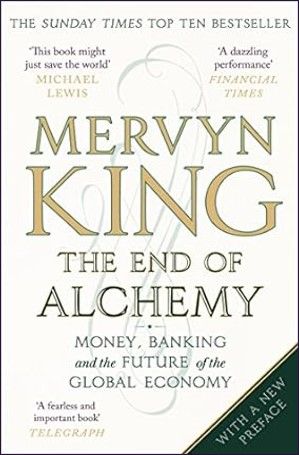
The End of Alchemy
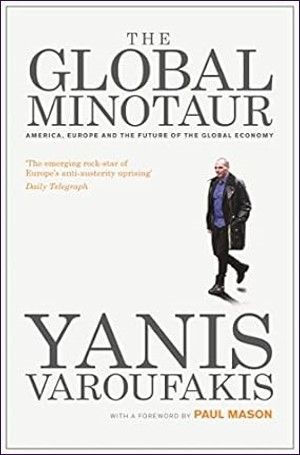
The Global Minotaur: America, Europe, and the Future of the Global Economy
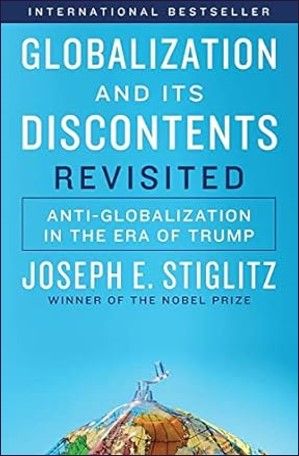
Globalization and its Discontents Revisited

The Affluent Society

Small Is Beautiful: Economics as if People Mattered

Black Skin, White Masks
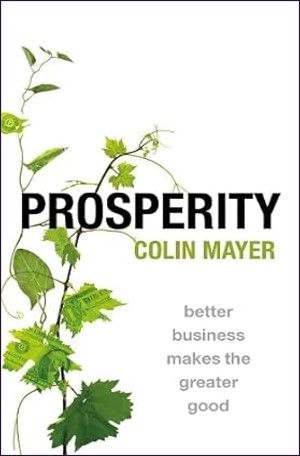
Prosperity: Better Business Makes the Greater Good

Capitalist Realism: Is There No Alternative?

The Corporation: The Pathological Pursuit of Profit and Power





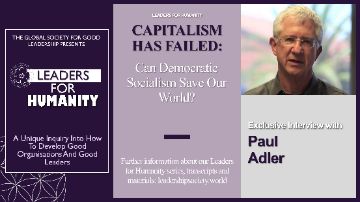
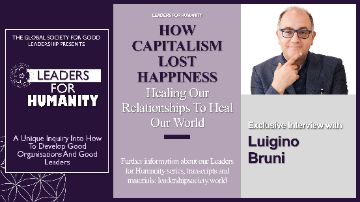
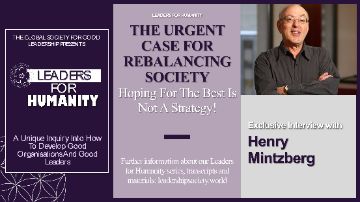
 .
.